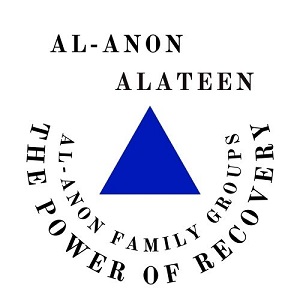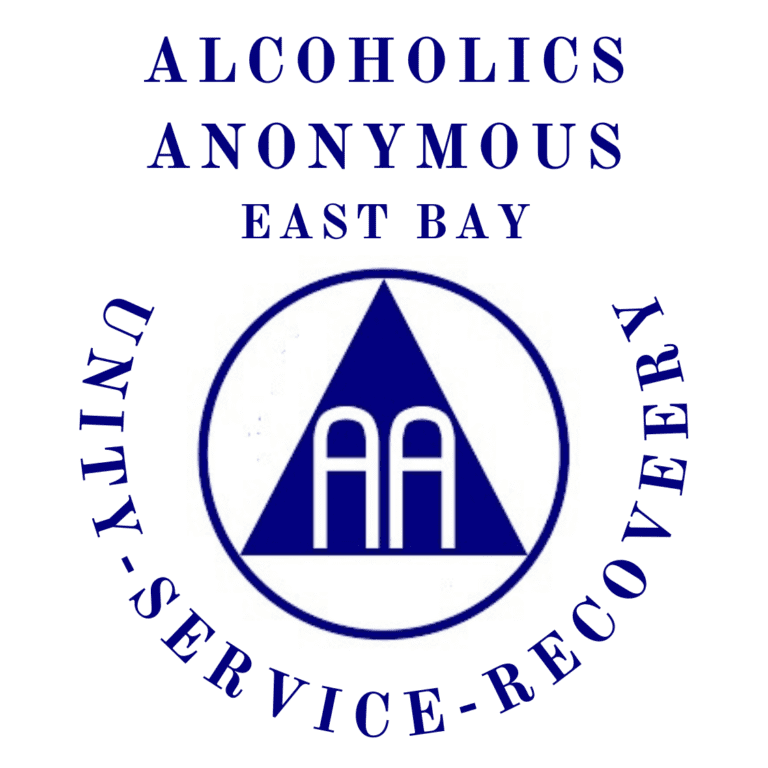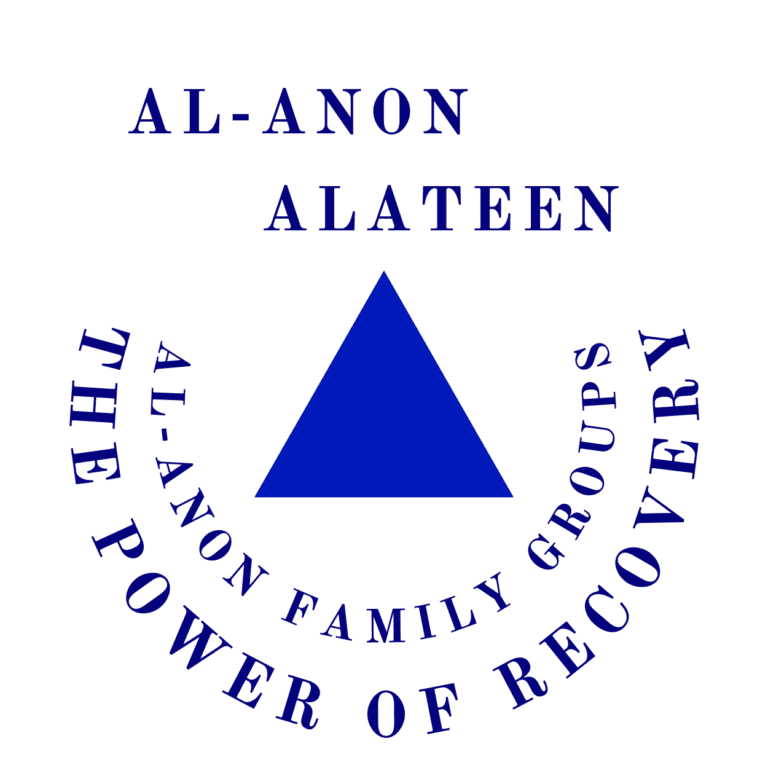From Powerless to Powerful
From Powerless to Powerful
From Powerless to Powerful
Alcoholics Anonymous
We Can Help
For those who cannot stop drinking despite their best efforts, Alcoholics Anonymous offers hope, support, and a recovery program that has helped millions find lasting sobriety.
From Powerless to Powerful
The primary purpose of Alcoholics Anonymous:
To carry the message of recovery to the still suffering alcoholic
Alcoholics Anonymous is a program of recovery from alcoholism. The AA program allows alcoholics to finally live free from the obsession with alcohol. Members of AA—those who have solved the drinking problem—show others how to achieve long-term sobriety. The original program of recovery describes freedom from the craving for alcohol. Hiding from alcohol is often an insufficient solution for those who have lost control of their drinking or the choice to stay sober after having quit.
.
Many members call the recovery program of AA a new design for living. Members who have found recovery are no longer held hostage by addiction to alcohol; In addition they find freedom from old belief systems that kept them from living their authentic life.
"And we have ceased fighting anything or anyone—even alcohol. For by this time sanity will have returned. We react sanely and normally, and we will find that this has happened automatically. We will see that our new attitude toward liquor has been given us without any thought or effort on our part. It just comes! That is the miracle of it. We are not fighting it, neither are we avoiding temptation. We feel as though we had been placed in a position of neutrality—safe and protected. We have not even sworn off. Instead, the problem has been removed." - Pg. 84, Tenth Step Promises, Alcoholics Anonymous
Alcoholics get sober working the Twelve-Step program of recovery; furthermore, they achieve long-term sobriety by giving back what was freely given.
Our experience in AA, is that none of us can recover alone, but that together we can.

Stock photos.
Membership in AA is unknown.
AA has no opinion on people who can drink normally or control when they drink.
What is Alcoholism
“We alcoholics are men and women who have lost the ability to control our drinking. We know that no real alcoholic ever recovers control. All of us felt at times that we were regaining control, but such intervals – usually brief – were inevitably followed by still less control, which led in time to pitiful and incomprehensible demoralization.”
– Alcoholics Anonymous, p. 30
The explanation that seems to make sense to most AA members is that alcoholism is an illness, a progressive illness, which can never be cured but which, like some other diseases, can be arrested. Furthermore, many AA members feel that the illness represents a combination of a physical sensitivity to alcohol and a mental obsession with drinking, which, regardless of consequences, cannot be broken by willpower alone.
“Physicians who are familiar with alcoholism agree there is no such thing as making a normal drinker out of an alcoholic.”
– Alcoholics Anonymous p. 31
*The definition of alcoholism as defined by the American Society of Addiction Medicine and the National Council on Alcoholism and Drug Dependence:
“Alcoholism is a primary, chronic disease with genetic, psychosocial, and environmental factors influencing its development and manifestations. The disease is often progressive and fatal. It is characterized by impaired control over drinking, preoccupation with the drug alcohol, use of alcohol despite adverse consequences, and distortions in thinking, most notably denial; Each of these symptoms may be continuous or periodic.”
What is Alcoholics Anonymous
All Inclusive
AA is nonprofessional, self-supporting, multiracial, apolitical, and available almost everywhere. There are no age or education requirements. Membership is open to anyone who wants to do something about their drinking problem.
Professionals, those that work with alcoholics commonly refer to AA as a peer support or a mutual support group. Those that have solved their drinking problem give back freely what was given to them
No Dues or Fees
The organization of AA is owned and operated by voluntary financial and service contributions of its members. Meeting attendance is free. Newcomers, loved ones, and friends of alcoholics are encouraged to visit meetings.
Members share their experience, strength, and hope with anyone seeking help with a drinking problem. They provide person-to-person assistance with sobriety and sponsorship to alcoholics, regardless of how they come to AA.
The program of recovery from alcoholism, outlined in the Twelve Steps, offers alcoholics a way to develop a satisfying life without alcohol.
Member's financial contributions are limited yearly, so no person or group can influence the overall AA organization.
Anonymity
Anonymity is part of the foundation of AA’s success.
The AA organization itself is not anonymous.
We ask the press to not use members full names or faces in public.
Protecting our anonymity protects the AA organization and fellow members.
Most importantly,
if members do not protect their anonymity, newcomers will not feel their anonymity is protected which can have deadly consequences.
No one sets out to become an alcoholic.
What’s In a Name
In the early 20th century, the term “alcoholism” was not commonly used. Instead, the condition now known as Alcoholism, Alcohol Use Disorder (AUD), or Alcohol Dependence Disorder (ADD) was referred to as dipsomania or chronic Inebriates.
Over the past 80 years, Americans have experienced numerous changes in the terminology used to describe this condition, from Alcohol Abuse Syndrome to Alcohol Dependence Disorder, and some not-so-nice names of which you are probably familiar. Despite the variations in name, the condition remains the same. Alcoholism is a chronic illness that must be treated because it is always serious and potentially deadly.
Alcoholics Anonymous and the Program of Recovery
The foundational text of Alcoholics Anonymous, commonly referred to as the Big Book, describes sobriety as complete freedom from alcohol. AA is still referred to today as the medical model of recovery, which posits that an abnormal physical reaction to alcohol is the root cause of alcohol dependence.
The founders of the recovery program for alcoholism realized they all had two things in common, they could not control how much they drank once they started, and they could not stay sober with self-will or self-knowledge.
The experience of another alcoholic who has found sobriety can prove invaluable and consequently produce results when other efforts have failed. Many members tried every possible solution to no avail. The AA program of recovery provides a way of adjusting belief systems that support addiction with belief systems that support long-term abstinence. A new design for living is what often attracts the newcomer as well as securing long-term sobriety for established members.
Physical Dependence and Its Consequences
According to AA, this physical dependence on alcohol often leads to mental and emotional issues, making early recovery particularly challenging. These conditions affect an alcoholic’s ability to stay sober through self-will or self-knowledge alone.
AA’s Holistic Approach to Recovery
The program of Alcoholics Anonymous can be considered a holistic approach to sobriety, addressing the whole person: mind, body, and spirit. AA believes that all aspects of an individual must be addressed for effective recovery.
In summary, while the terminology for alcohol dependence has evolved over the years, the condition itself remains unchanged. Alcoholics Anonymous offers a comprehensive program that addresses the physical, mental, and spiritual aspects of recovery, thus providing a supportive framework for individuals seeking sobriety.
Religion, Spirituality, Myths About AA
No affiliation.
One misconception about AA is that it is a religious program or even a cult. AA has no dogma and no spiritual leaders.
The AA organization is neither affiliated with nor endorses any religious belief or dogma. Members of AA range from staunch atheists to the most ardent religious devotees from every denomination, sect, and culture.
AA does not tell anyone what to believe in. Instead, it is suggested that you develop an open mind.
Spirituality in AA.
A key component of AA’s approach is its emphasis on spirituality. Each individual determines what spirituality personally means, making the program accordingly accessible to people from all walks of life, regardless of their personal belief systems. Spirituality can be as simple as discovering one's own truth. Meditation is one of the Twelve-Steps, and many who suffer from addiction find it vital to sobriety.

Stock photos.
Membership in AA is unknown.
“I no longer had to drink against my own self-will. “
– cofounder, Alcoholics Anonymous
Treatment or AA
Professional treatment for alcoholism can be highly beneficial for many individuals due to the structured environment, support, and safety provided by treatment centers frequently mark the beginning of long-term sobriety for countless recovered alcoholics. Many treatment programs strongly encourage participation in Twelve-Step recovery programs, such as AA. Nonprofit organizations like The Betty Ford Foundation are founded on the guiding principles of AA, offering a variety of support services. However, the key to long-term sobriety lies in building a recovery community around the individual and equipping them with tools to navigate life in a recovered state.
Assistance by professionals during detox is always recommended, since alcohol withdrawal can be life-threatening. Medical professionals understand the critical need for support during the first few hours and days after an individual stops drinking, ensuring their safety and well-being.
While the initial days of sobriety can be challenging, remember that AA offers substantial support. Adhering to the AA program of recovery can alleviate many of the emotional and mental symptoms associated with alcoholism, helping individuals maintain their sobriety and improve their overall quality of life, as frequently demonstrated.
AA Meetings

AA exists in over 180 countries. The book, Alcoholics Anonymous, is the basic text of AA. It has been translated into over 70 languages. There are AA meetings starting every hour. Most communities have several meetings a week, if not hundreds of meetings in large metropolitan areas. Virtual meetings are available around the world.
AA members share their experiences with recovery from alcoholism so that newcomers can identify to get the help they need.
Overall, there are over 300 other organizations that also implement the AA Program of Recovery for other problems and addictions. Hence, the Twelve Steps and Twelve Traditions of AA, are used by each Twelve Step Group or organization to keep to a singleness of purpose.
Finding a meeting can be as easy as typing “AA Meetings” into the search bar. There are virtual meetings around the world every hour, in person meetings can be found using your search engine
Open Meetings
Open meetings welcome anyone interested in Alcoholics Anonymous. Non-Alcoholics and family members of alcoholics are welcome to attend open meetings.
Closed meetings are for AA members or anyone that identifies as an alcoholic.
Additionally, alcoholics with multiple addictions are also welcome in the AA program. The only requirement for membership is a desire to stop drinking.
AA meetings come in many formats. There are "check-in" meetings, literature studies, open sharing, share-your-problems meetings, speaker meetings, workshops, step meetings, and conferences around the world.
Furthermore, AA offers special interest meetings which include: meetings for POC, the LGBTQ+ community, women’s meetings, men’s meetings, foreign language meetings, those with co-existing problems, etc.. AA has a room for everyone.
Group Support
Making the decision to go to an AA meeting can be intimidating and uncomfortable. It is a courageous first step in admitting to yourself that you may have a drinking problem. However, the shared experience of recovered alcoholics can help.
Fortunately, every AA participant has had a similar experience. The organization itself was founded by people just like you.
We have a common solution for a common problem.
The success of this recovery program is based on the concept that one alcoholic has a unique ability to help another alcoholic, as only an alcoholic can. Experience has shown that those who do not understand the disease of alcoholism remain hopelessly unable to help us.
The purpose of an AA Group is to cultivate a feeling of community and understanding to bring the program of solution to the still suffering alcoholic and cultivate community outreach for those who have first contact with the alcoholic.
Primary Purpose
Our first duty, as an organization, is to insure our own survival. Therefore, we must avoid distractions and multipurpose activity.
“Sobriety – freedom from alcohol – through the teaching and practice of the Twelve Steps is the sole purpose of an AA group.”
Problems Other Than Alcohol. P-35,AAWS
TRADITION FIVE: Each Alcoholics Anonymous group ought to be a spiritual entity having but one primary purpose–that of carrying its message to the alcoholic who still suffers.
The purpose of an AA meeting is to help the newcomer find the help they need. AA has no opinion on outside issues, thus protecting the meeting rooms of AA and the organization from controversy.
AA meeting confirmations
Outreach to Professionals.

Stock photos.
Membership in AA is unknown.
AA members and service groups are encouraged to reach out to their local professionals.
Recovered alcoholics understand the importance of service and outreach to others.
AA members often embrace the term “alcoholism,” expressing gratitude for the lessons learned through sobriety and surviving a deadly disease. Phrases like “I am a grateful alcoholic” are common at AA meetings.
Many believe that their experience with alcoholism provided profound self-understanding and awareness of their impact on others and society.
For Professionals
Professionals in AA:
For professionals seeking help with a drinking problem, it is important to understand that the majority of AA members maintain their jobs and professions while participating in the program. Unfortunately, some individuals have experienced significant losses, but with the proper support and the tools provided by the AA program of recovery, they can rebuild their lives.
Professionals on the Front Lines:
Professionals who work with or encounter alcoholics share a common goal with Alcoholics Anonymous: helping individuals stop drinking and lead healthy, productive lives. AA members offer valuable personal experience with recovery, and experts in the field recognize the importance of an ongoing support system for those in recovery.
AA Service Committees:
The AA organization maintains service committees with members trained to engage with professionals, helping the broader community better understand alcoholism and the AA program of recovery.
Is AA Still Relevant After 80-Plus Years?
The book Alcoholics Anonymous does not support the idea that alcoholism has a single cause. Many individuals start drinking in response to life’s challenges, while others may drink moderately for years before suddenly losing control. Within AA, there are many alcoholics who cannot trace their loss of control to any specific circumstance or life event.
However, the basic text of AA aligns with many concepts recognized by addiction medicine experts, acknowledging that alcoholism can lead to numerous physical and mental health issues.
The Al-Anon Family Groups
The Al-Anon organization believes that alcoholism is a family disease.
Al-Anon Family Groups also provide support for Alateen in many communities. Alateen is for teenagers who have been affected by someone else’s alcoholism.

The Whole Family Deserves Recovery
Alcoholism frequently affects the loved ones of alcoholics. Al-Anon uses the shared experience of its members to help newcomers better understand alcoholism, and find support from others who have faced similar experiences.
Al-Anon Family Groups is a Twelve Step Program of recovery. Members are made up of people concerned with someone’s drinking problem.
Starting with the first gatherings of alcoholics in 1935, before the group or organization had a name, the families of alcoholics were meeting and sharing their experiences with their loved ones.
Loved ones joined their alcoholic family members in their gatherings and together, they sought out ways to support sobriety for the entire family.
Find the help you need

Alcoholism Recovery Program
The primary purpose of AA is to carry the massage of recovery to the still suffering alcoholic. By carrying the message of recovery to the greater community and professionals, those with first contact can carry the message of recovery to those in need.
AA Bay Area is an organization sustained by AA members, Groups in the San Francisco Bay Area, as well as Public Information and Cooperation by the Professional Community Committee members around the world.
